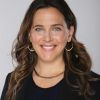Federation Fellows Program Helps Participants Find Community
I am not a picky eater. I attribute it to my grandmother – a glamorous and persistent Persian Jewish woman – who, through ingenuity and wisdom, somehow persuaded generations of children to drink salty, carbonated yogurt (doogh) and eat foods that “touched,” like white rice smothered in an ominous brown sauce (khoresht-e fesenjoon). Although, it wasn’t always easy to be the kid at summer camp whose parents packed “weird” leftovers for lunch, the food was never boring. But it wasn’t meaningful either.
When I moved to Israel after college, I discovered that it wasn’t just my family who ate this way. Indeed, food seems to be one aspect of “life in the old country” that no Jewish community dared to leave behind on the trek to Israel. Children all over the holy land had “strange” ingredients in their school lunches but didn’t point to an arduously prepared dinner and say, “Ew, Mommy; it looks dirty,” like my brother did as a child. On the contrary, it wasn’t unusual to be seated beside a young kid at Ima Kubbe Bar feverishly shoveling an ancient recipe into his tiny, kid mouth. Wandering through the Machaneh Yehuda market (“the shuk”) in particular was like a passport to “our peoples’” dining table, for in the market, I could eat breakfast as a Tunisian, lunch as a Baghdadi and dinner as a Pole. The market vendors increasingly began to feel like family and the foods launched me into wholly different generations, countries, and Jewish peoples. And I never looked back.
The shuk is just one example of how there is not one way to define Jewish food. It is so much more diverse than bagels and matzo ball soup. Sometimes Jewish food draws from poverty or luxury, reflects nomads or urbanites; sometimes it tastes like bitterness, and sometimes it tastes like triumph. But the one common element is that Jewish food always connects us to our heritage and brings all our varied Jewish communities together.
For the last year in a half, I have had the pleasure of participating in monthly leadership sessions through the San Francisco based Jewish Federation’s Federation Fellows program. When I moved back from Israel two-in-a-half years ago, I felt lost in a Jewish community that I had once called my own. I had lived in Israel, changed, and failed to find a community that would accept me as an in-betweener – not as reform, as I had been when I lived in Marin, but not as conservative as I felt while living in Israel.
Without this program, I would not have had the unique opportunity to participate as a committee member involved in planning the first Jewish Food Festival in San Francisco. There, I saw the inner-workings of divergent viewpoints come together to assemble dozens of moving pieces and create what I can now reflect on as a vibrant and educational day of learning and eating. On the committee, I used the tools I learned in Federation Fellows to recognize my leadership style and find a voice in a community that is a meaningful expression of my Jewish identity. I am grateful to the program for helping me grow as a leader and impact my community in a positive way, and I am happy to say that a year-in-a-half into the Federation Fellows program, I have met Jewish people with whom I have formed professional and personal relationships. My community is growing and it wouldn’t be that way without the Federation Fellows program.
Lauren Wilner is a participant in our Federation Fellows program.



